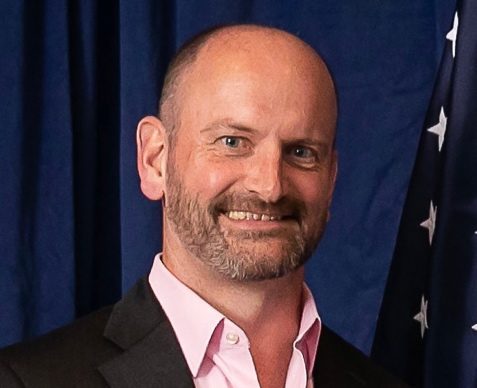
- The Mississippi Senate caved on full Medicaid expansion last week. Moments before the deadline for conference reports Monday night, the House caved on a work requirement. Now what?
When Senate Medicaid Chairman Kevin Blackwell stood before his chamber earlier this session, he pitched the Senate’s Medicaid expansion plan as a conservative alternative. Blackwell told his colleagues he was opposed to full Medicaid expansion under Obamacare and would not support it.
The Affordable Care Act, commonly referred to as Obamacare, allowed states to expand Medicaid in two ways. First, it took a program designed for children, pregnant moms, the disabled and the elderly poor, and created a new class of eligible beneficiaries — able-bodied adults without dependents. Second, it increased the income threshold for all able-bodied adults to 138 percent of the Federal Poverty Level (FPL).
The Senate’s original proposal created eligibility for able-bodied adults, like Obamacare, but only up to 99 percent of FPL. Blackwell voiced opposition to going up to 138 percent and voiced support for a strong work requirement.
After an agreement was reached late Monday between House and Senate Medicaid expansion conferees, he now has the task of standing before senators and explaining why they are being asked to vote on a much more expensive full Medicaid expansion plan with a weakened work requirement. The margins are thin, both for passage and for sustaining a veto proof majority.
The Senate’s original concept of partial expansion was bolstered by the fact that people earning between 100-138 percent of FPL have access to insurance through a different federally-subsidized component of the ACA.
An individual in this income bracket can receive a private health insurance plan at no cost to them. In every county in Mississippi, there are $0 premium, $0 deductible, and $0 co-pay plans available, according to Jonathan Ingram at the Foundation for Government Accountability. The federal government and insurers pick up the whole tab.
The Center for Medicare and Medicaid Services (CMS) says there are 181,844 Mississippians earning between 100-138 percent of FPL enrolled in a private plan through the ACA exchange. Traditional Medicaid expansion up to 138 percent of FPL — like that originally proposed in the Mississippi House — would have had the impact of shifting these individuals off of their private plans and onto Medicaid.
The Senate’s original proposal created a 30/hour a week work requirement and quarterly eligibility checks.
On the other end of the Capitol, the Mississippi House had been exuberant to pass full Medicaid expansion that was not contingent upon the approval of a work requirement. HB 1725 was rammed through the process early in the session without a single comment, question or amendment proposed on the House floor.
The bill bore the name of Speaker Jason White, but the House’s effort has been led by Rep. Missy McGee. In negotiations, McGee proposed a compromise that would keep people earning between 100-138 percent of FPL on the private ACA exchange plans, but would roll those plans under the Division of Medicaid.
The proposal is similar to the Arkansas model, which has proven to be the most expensive form of Medicaid expansion — a feat given massive enrollment and costs overruns in every state that has expanded. Under the proposal, the state of Mississippi would become responsible for 10 percent of the costs of the ACA exchange plans, presently paid for in full by the federal government.
Basically, the compromise would provide for the exact same people as the Senate’s original plan, with the exact same insurance, but at a much higher cost and administrative burden to the state.
READ MORE: Breaking Down House, Senate Medicaid expansion plans
The Senate conferees have done the math and know this, but ultimately agreed to McGee’s proposed compromise under intense internal and external pressure by people who refuse to accept that the conditions have changed since Medicaid expansion first became an issue. Senate conferees added a less strict version of the Senate’s previous work requirement. Now, eligibility will only be subject to annual verification and the hour requirement has been reduced to 100 hours/month.
Even still, it was unclear that the House would accept the work requirement and it looked like the issue might die for the year. Vocal supporters of Medicaid expansion on the left have been opposed to requiring able-bodied adults to work as a condition of receiving taxpayer-funded health insurance. Moments before Monday’s 8 PM deadline, House conferees agreed to the watered-down work requirement.
McGee will presumably have an easier go in selling the proposal to her chamber than Blackwell will to his.
One interesting thing to note is that the compromise reached includes a new tax that had not been included in previous passed versions. In both the House and Senate plan, the state portion of the plans was to be financed through a tax on managed care organizations (MCOs) that help manage the existing Medicaid population.
But the taxes that would have been collected from MCOs are very likely insufficient to pay for the compromise proposal. The new additional tax that appeared in the conference report is on the insurance companies that provide policies under the ACA exchange. It does not appear this code section was contained in either the House or Senate’s original proposals, a fact which could generate a point of order during debate.
Assuming that the bill passes both chambers, it awaits the Governor’s veto and potentially a fight to see if that veto can be overridden. It is a peculiar dynamic given the fact that the Governor’s mansion and both chambers of the Legislature are controlled by self-identified Republicans.
Even if the bill becomes law, the plan will have to be approved by CMS — something which is certainly not a foregone conclusion. In the meantime, a lot of political capital and goodwill will have been spent.











